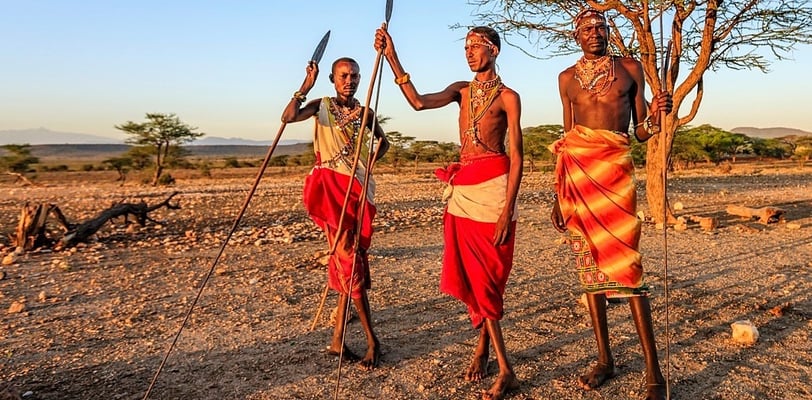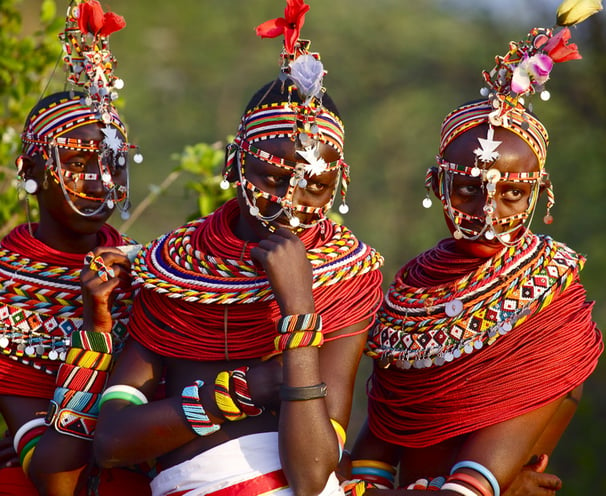The Samburu tribe in Kenya
Embarking on a Captivating Samburu Tribe Tour in Kenya: Unveiling the Vibrant Culture of the Warriors
KENYA CULTURE


Kenya, a land of diverse cultures and breathtaking landscapes, is home to the Luo tribe—a community known for their vibrant traditions and deep-rooted cultural heritage. In this blog, we embark on a captivating cultural safari to explore the traditions, customs, and enchanting beauty of the Luo people in Kenya.
Unveiling the Luo Tribe:
In the rugged landscapes of northern Kenya, a tribe of fierce warriors known as the Samburu beckons visitors to immerse themselves in their rich cultural heritage. In this blog, we invite you on an extraordinary journey to explore the traditions, customs, and captivating beauty of the Samburu tribe. Prepare to be enchanted by their vibrant culture and the untamed wilderness that surrounds them.
Discovering the Samburu Tribe: The Samburu people are a proud and resilient ethnic group residing in the arid lands of northern Kenya. They share linguistic and cultural similarities with the Maasai and have managed to preserve their unique identity and customs despite modern influences. Engaging in a Samburu tribe tour offers a glimpse into their extraordinary way of life.
Traditional Dress and Adornments: The Samburu are known for their colorful and distinctive attire, which reflects their cultural heritage. Men don brightly colored shukas (cloths) draped over their shoulders, while women wear intricately beaded necklaces, bracelets, and earrings. Engage with local artisans to learn about the significance of beadwork and witness the craftsmanship behind these stunning adornments.
Warrior Culture: The Samburu warriors, known as morans, hold a central role in Samburu society. They undergo rites of passage and rituals, embodying the values of strength, courage, and leadership. Witness their captivating displays of jumping competitions, traditional dances, and ceremonies that celebrate their warrior status. Engaging with morans offers a deeper understanding of their customs, roles, and age-old traditions.
Cattle Herding and Nomadic Life: Similar to other pastoralist communities in East Africa, the Samburu rely on cattle herding as a primary source of sustenance and livelihood. Explore their nomadic lifestyle as they traverse vast landscapes in search of grazing lands and water sources. Witness their intricate knowledge of animal husbandry and their harmonious coexistence with the natural environment.
Cultural Traditions and Ceremonies: The Samburu people have a rich tapestry of cultural traditions and ceremonies that mark significant milestones in their lives. Engage in conversations about their customs, marriage rituals, and age-set systems that govern social structures. Witness traditional dances, storytelling sessions, and vibrant ceremonies that bring the community together to celebrate their heritage.
Exploring Samburu Landscapes: The Samburu region is blessed with diverse and breathtaking landscapes. Embark on nature walks, game drives, or camel safaris to witness the rugged beauty of the arid lands, the lush oases along the Ewaso Ng'iro River, and the abundant wildlife that roams the Samburu National Reserve. Engaging in community-led ecotourism initiatives allows you to experience the region's natural wonders while supporting the Samburu's sustainable development.
Preserving Samburu Culture: Engaging in a Samburu tribe tour supports the preservation of their rich cultural heritage. Choose responsible and ethical tour operators who prioritize respectful interactions, fair compensation for the community, and sustainable tourism practices. By supporting the Samburu people, you contribute to the continuity of their traditions and the well-being of their communities.
Conclusion: A Samburu tribe tour in Kenya unveils a captivating world of warriors, vibrant traditions, and breathtaking landscapes. Immerse yourself in the Samburu culture, witness their warrior rituals, engage with the community, and discover the profound connection they share with their ancestral lands. Through responsible and meaningful engagement, your journey will leave you with a deep appreciation for the resilience, heritage, and enduring spirit of the Samburu tribe.
Note: When participating in Samburu tribe tours, it's crucial to respect their customs, traditions, and sacred spaces. Engage with licensed tour operators or community-based organizations that prioritize ethical interactions and contribute positively to the well-being of the Samburu community.




